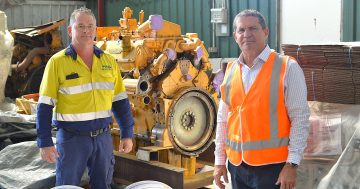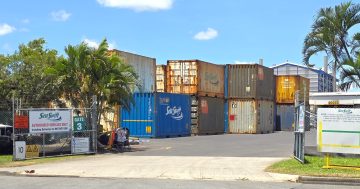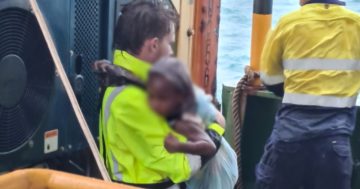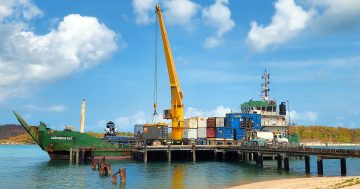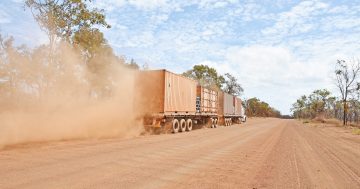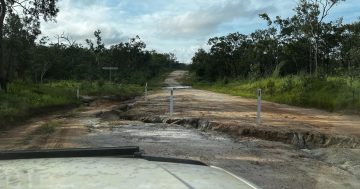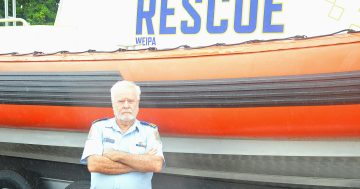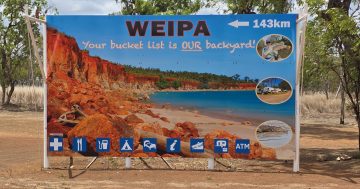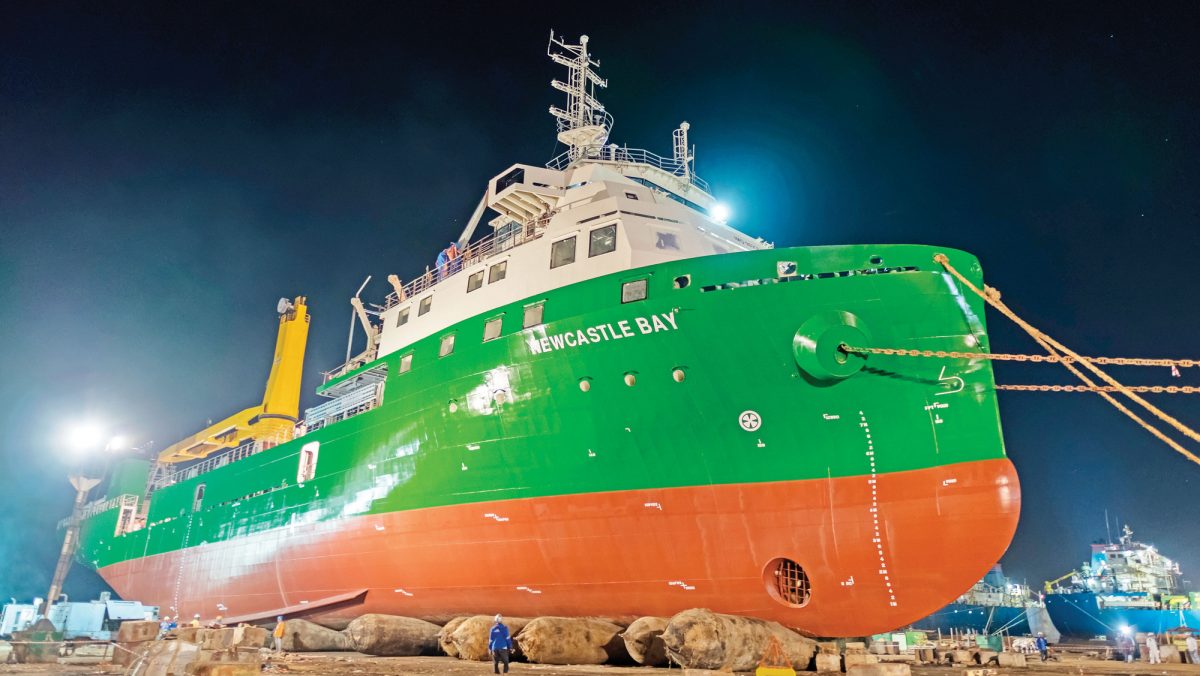
THE chief executive officer of Sea Swift says the company has no plans to sell its yet-to-be-delivered vessel, quashing a nasty rumour doing the rounds.
Dwayne Freeman said that he had heard many false stories, but was firm in his response that the Newcastle Bay would be servicing the Cape and Torres Strait before the next wet season.
“I can categorically say that we are taking possession of this vessel,” he said in an interview with Cape York Weekly on Friday.
“We’re not selling it or disposing of it in any way.”
Mr Freeman said delays on the ship’s construction had frustrated Sea Swift, but global staff shortages were having an impact.
“We’ve been waiting long periods of time for specific components for that vessel and other things, which has meant that it has been delayed, but (Newcastle Bay) will be here this year and we will get it into service,” he said.
“At the right point in time, once we’ve tested the vessel and gotten it into service, we will also reintroduce the passenger services.”
https://www.youtube.com/watch?v=ekT0tD3fFPc
The vessel is still being fitted out in Indonesia, the CEO said.
“It’s going through the final sort of stages of commissioning and testing. That will take place between now and sort of mid-year and then it’ll make its way to us,” Mr Freeman said.
“I’m certainly hopeful the vessel will be in place by sort of Q3 of the calendar year this year.
“But with the sort of distances you’re dealing with and some of the issues you’ve got in dealing with labour supply and other things, it’s not uncommon for these things to either come forward or go back by a few months at a time.
“But certainly (we’ll have it) this calendar year, and I’m hopeful that we’ll have this thing in place by the third quarter of the year.”
While Mr Freeman said he did not appreciate the rumours, he said he understood the great amount of interest in the new vessel, which was originally meant to join the fleet in 2021.
“Everyone is interested in it and wants to talk about it,” he said.
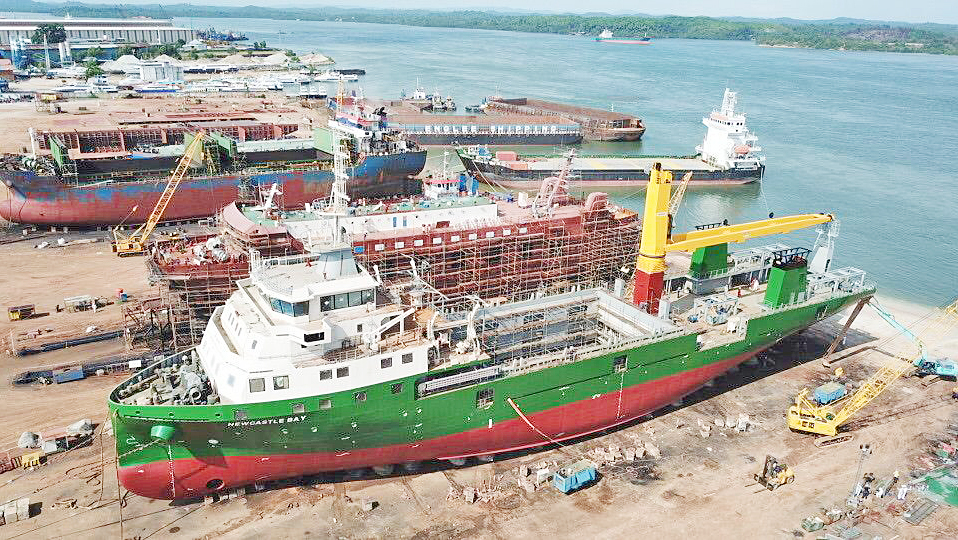
“I have heard multiple rumours about all sorts of things, including our competitors buying the vessel and running it and all of these sorts of things.
“Everyone’s interested in this vessel right because it’s sort of a flagship move from Sea Swift in the past and sort of links back to our identity.
“For me, getting this vessel in service is one of the critical pieces for Sea Swift and there’s no way in the world I would sell that or not take delivery of it, because it’s a critical element in our business.
“Having a line haul vessel that can meet the schedule that’s required from Cairns to Horn Island, and Weipa is critical for our business to getting food deliveries into the OTSI (outer Torres Strait islands), as well as the Cape region.
“You can’t do it with landing craft, and I’ve got competitors that may think that they can.
“But certainly, from our perspective, we think that having a high-speed, line haul vessel is critical to running services in the Cape and the Torres Strait.”
Mr Freeman said Sea Swift had been forced to adapt its fleet to ensure it could meet the demanding schedule while waiting for the Newcastle Bay to arrive.
“As you know, particularly when you’ve got a network business, you rely on these assets,” he said.
“With the delays in that asset we’ve acquired at least a couple of vessels and we’ve also done work, very good work with AMSA (Australian Maritime Safety Authority).
“With AMSA, we have done works and extended out the lives of a few of our vessels to make sure that we can continue to meet that schedule.
“We’ve invested heavily in making sure that we’ve got that fleet available during that period of time.
“We’ve got a newly acquired landing craft turning up in the next few months and we’ve got options to buy multiple vessels to fill any gaps.”
FREIGHT SUBSIDIES
WHEN Mr Freeman took on the Sea Swift role in July, he walked into a company that was struggling to stay afloat.
With the delay of Newcastle Bay, a pandemic creating staff shortages and the cost of fuel and essential goods rising, the board implemented a 14.5 per cent rise on freight, which Mr Freeman had to announce just weeks into the job.
There are behind-the-scenes talks of freight subsidies for remote communities in Queensland and the Torres and Cape Indigenous Councils Alliance has commissioned a report into a freight subsidy for the region.
Mr Freeman said Sea Swift was supportive of the idea to help remote communities thrive.
“I want to make it clear that this is not about Sea Swift and improving our bottom line,” he said.
“I’ve done a lot of work over 20 years in supply chains.
“This is one of the most fractured, long supply chains you can deal with, particularly on the food side.
“When you’re at the end of a very long supply chain, naturally, the costs are very high.
“The big chunk of our business is supplying energy, food and basic materials to remote regional communities.
“Now, we know that is a high cost, not so much from a Sea Swift perspective, but because of the labour.
“Getting labour at the moment is a high cost and with unemployment where it is now, it is very expensive to do business.
“To get that cost down for some of the communities out here that can least afford it, I think is an important thing for government.
“Some of the things we do are really like a community service obligation. There are some services legs we run, which are really sort of basic services to the community.
“And as such, do I think the government should engage in (freight subsidies) in the right way? Yes, I do.”
Mr Freeman said Sea Swift delivered to some Torres Strait Islands at a loss.
“We’ve got certainly some market segments in both the Northern Territory as well as Queensland that we don’t make money on,” he said.
“What that does is it puts pressure on being able to renew assets. We run very heavy, asset-intensive businesses and vessels aren’t cheap.
“Having the money there to actually reinvest in that is the difficult component here.”


